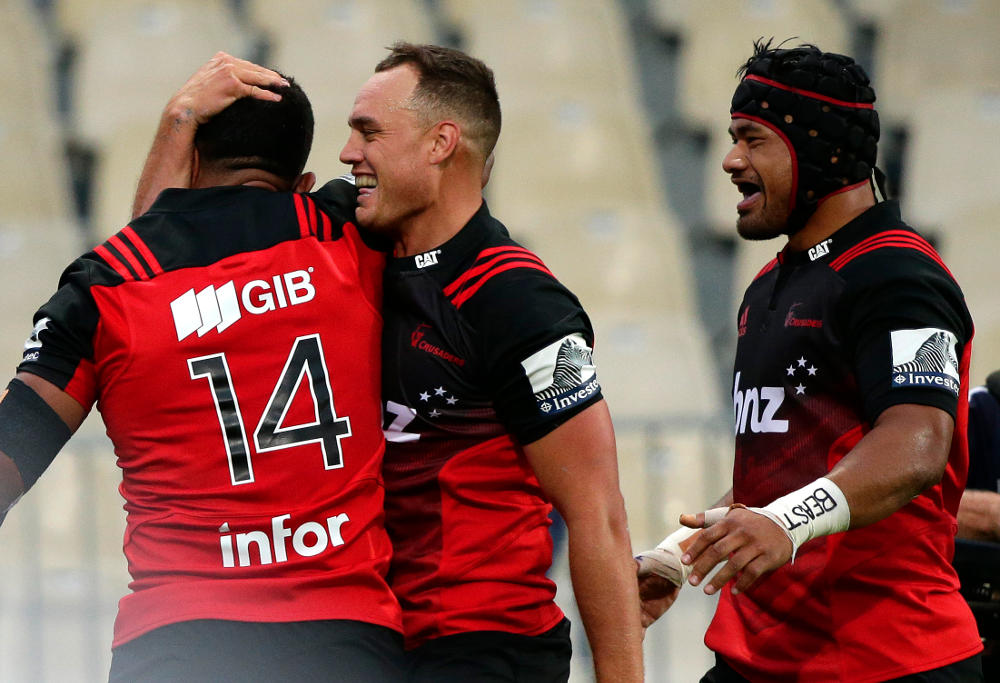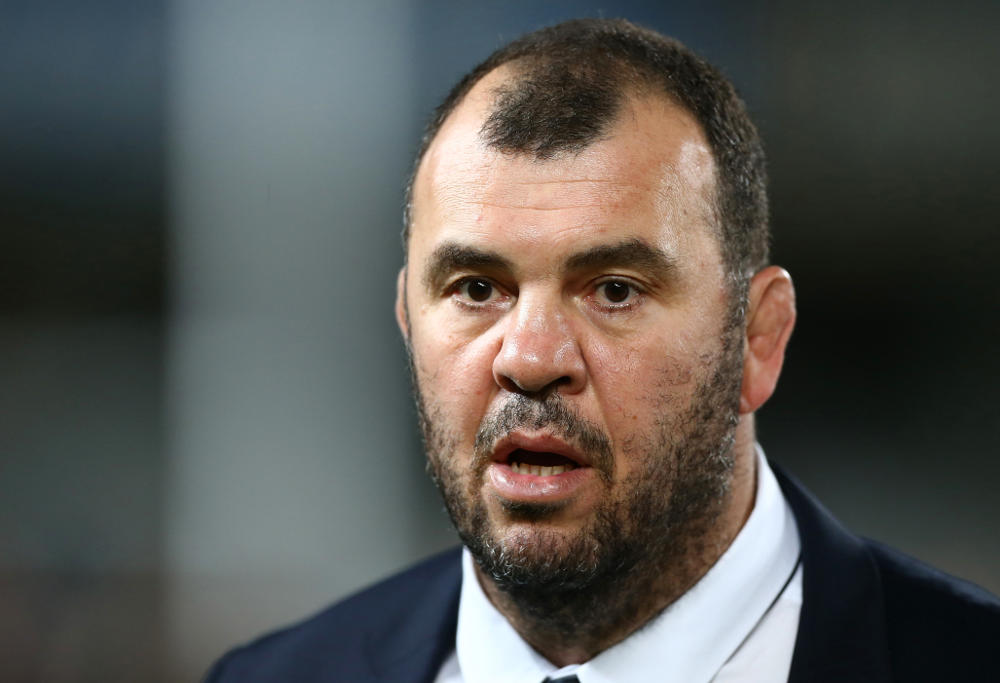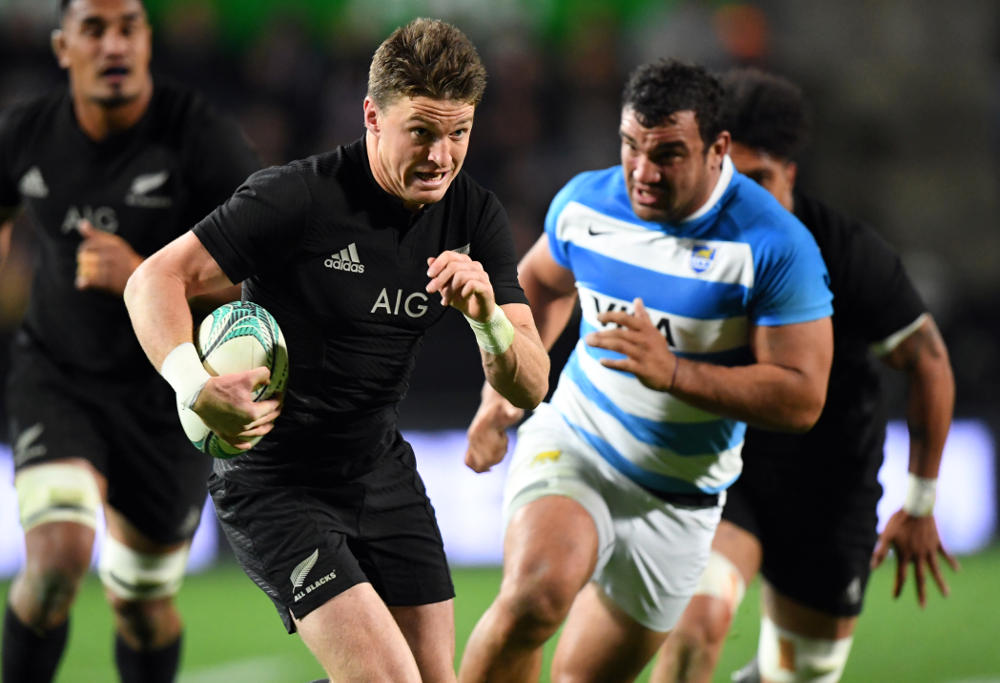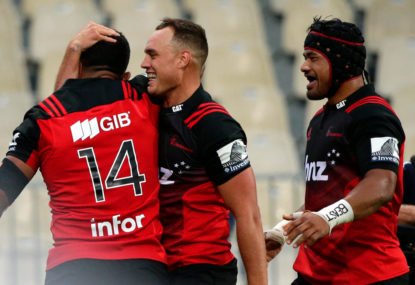In 1957, the physicist Hugh Everett came up with a theory of multiple realities that took in quantum mechanics. It suggested all possible alternate histories and futures are real within their own worlds.
From a rugby standpoint, it’s compelling to think of a large – possibly infinite – number of rugby universes where every possible outcome of every event defines or exists in its own history or world.
When I think back to the start of the Crusaders’ campaign, it’s very easy to map out in my mind an alternate world where the Crusaders are languishing near the bottom of the New Zealand conference.
To say the Crusaders got off to a fairly shaky start is like saying Beauden Barrett’s playing quite well this year.
The Crusaders started well enough against the Brumbies at home building up a half-time lead of 12-3 but ran out unconvincing winners at 17–13.
Things looked perilously beyond their reach against the Highlanders and the Reds. The Crusaders went to the sheds well behind on the scoreboard: 17–6 and 20–7 respectively.
They somehow managed to claw their way back into those two games using their traditional core strength. If you have that much firepower at your disposal in the forwards, you’d be foolish not to use it.

(AP Photo/Mark Baker)
And so they did. Waisake Naholo was cutting to them shreds so they kept it in tight and used their set-piece dominance to get themselves back into the game. Lo and behold, the Highlanders started using up more energy defending and the gaps started appearing to steal it at the end in the right-hand corner.
With the Reds, it proved a similar story. Samu Kerevi punished them early on and though they scored a couple of good tries out wide, it was the forwards that wore them down and the defence in close got the winning penalty.
At this stage, there was the impression that the Crusaders were one-dimensional and only saved themselves with their pack. That didn’t tell the whole picture but, nonetheless, it was a fair assessment.
It was a familiar tale with the Blues at home. Augustine Pulu and George Moala punished the Crusaders early on. But the pack got them back into the game with pick-and-goes, rolling mauls and backs attacking the fringes after multiple phases and the Crusaders had well and truly replaced Elvis as the comeback kings.
Here’s where the Crusaders can be seen as beacons of hope. The margins between winning and losing are very small at this level. If you look at the Blues and Highlanders – albeit with much tougher fixtures – it’s not difficult to imagine an alternate reality where they sat at the top of the table and the Crusaders sat at the bottom of the table.

(AP Photo/Mark Baker)
One simply cannot overstate the psychological benefits of winning. In a way, it could be argued the shaky manner of the victories added to that psychological boost. Like the Highlanders last week in Bloemfontein, imagine the Crusaders leaving the field after those four games thinking ‘how on earth did we win that?’
Equally, think of the devastating psychological impact of losing those types of games. When your confidence gets shaken, it’s much like the devastating possibility of being culled from the Super competition: nagging doubts begin to cloud your judgement.
Similarly, imagine the Waratahs, who have made a habit this year of losing the game in the first half and putting on a much more convincing display in the second half. No matter how much Michael Hooper dressed up the defeat in winning trousers, it still was a horrendous looking top that made for a catastrophic ensemble.
The Crusaders’ comeback wins started to have a flow-on effect in the team’s overall performances. The Force at home was just the tonic for a side desperate to achieve solidity in the opening exchanges.
Since then, the only game the Crusaders have been down at half time was the following one against the Waratahs away. This was before the thorns started to well and truly overrun the roses.
Of course, you could well argue that the Crusaders haven’t yet faced really stern opposition or found them in a rich vein of form. But historically, despite being notorious slow starters, the Crusaders have been amazingly consistent in reaching the finals.
What is undeniable at this stage of the competition, however, is that the Crusaders are looking most convincing across the park. Notable absences such as Kieran Read, Israel Dagg or more recently Sam Whitleock haven’t disrupted the side.
This year has seen the rise of the rookies. Mitchell Hunt had to fill in for Richie Mo’unga and Whetu Douglas for Kieran Read. David Havii replaced Israel Dagg at fullback and George Bridge came in for Seta Tamanivalu. You could make a case for all of those players to keep out the incumbents simply because they are playing so well.
The crux of the matter is that a winning environment brings out good footy. Former halfback Andy Ellis recently commented Razor Robertson has done a good job of bringing in young charges he’s been involved with and evolving the team’s attack while using their traditional forward platform.
This is undoubtedly true and recent games have seen the backs excel as much as the forwards. But I would suggest all that adventurous play would have been out the window if the Crusaders had dropped a few games early on.
Andy Ellis hit the nail on the head when he said when you go out on the field thinking you can beat anyone that belief transfers to how you play the game.
This is what Michael Cheka alluded to admitting that the Australian teams were down on their luck but it’s easy enough to turn that around. String a few victories together and suddenly you start to believe.

(AAP Image/ David Rowland)
Look at the effect the Rugby Championship win in 2015 had on Australia’s World Cup performance. The Group of Death turned out to be the New Lease of Life after the disappointing autumn tour in 2014 but it was built upon that impressive run of victories before the World Cup.
The Brumbies are a clear case in point this year. We were told that they had ‘turned a page’ on attacking rugby in their thrilling display against the Reds at home. The book apparently ended there as although Speight bagged a double, the Brumbies couldn’t open up a spirited Rebels side the following week.
Similarly, when you analyse the performances of the South African sides, ostensibly it’s difficult to pick out any positives. But look at how the Kings responded when they picked up a win against the Waratahs away. They put in a great second-half performance against the Reds and then blew the Rebels away, who probably fancied their chances after the win against the Brumbies and the draw against the Sharks.
Winning is by no means a guarantor of success but if it becomes a habit, it’s difficult to shake. The problem is how can you turn around your fortunes when losing can just as easily become a habit?
The key is to identify where your strengths are at and to play to them. Conversely, it’s important to identify your opponent’s strengths and play to their weaknesses.
I have been impressed with the offloading game of the South African sides this year. They have endured some inglorious defeats but some of their tries have been absolute gems to watch with their continuity.
Yet I have been amazed at how weak the fringe defence of South African sides have been. Even taking into account multiple phases on defence, some of the tries that have been almost walked in around the fringes have been dire to watch. The traditional compact, rush defences have been well and truly opened up.
I’m not just talking about the aerial brilliance of Beauden Barrett’s cross-field kicks. The line defence near the goal has been far too passive and New Zealand sides like the Crusaders have picked up on that and have been merciless in exploiting those gaps.

(AAP Image/SNPA, Ross Setford)
Many point to a lack of skills, a gulf in fitness, a lack of rugby awareness. I don’t subscribe to that theory. I’ve seen enough this year, albeit it in glimpses for some sides, that all are capable of playing the game at pace and are able to achieve continuity through deft offloads or well-taken kicks.
I would argue that the whitewash of New Zealand sides against Australian sides this year is more a mental block for the Australian sides than a gulf in class. When things don’t go your way, it’s easy to point out what’s going so right for your opponents.
But somewhere out there, an alternate reality exists where things are going right for your side and your opponents like the Crusaders are getting their hides tanned.
Sometimes you don’t realise just how lucky you are. Conversely, sometimes you don’t realise just how lucky you could be. Never give up hope. The next game is your chance to break into a more inviting alternate reality.

































































































